On the night of March 18 Beijing Time, Sino-Uruguay “COVID-19” Pandemic Prevention and Control Experience Online Exchange Meeting, co-organized by the college and Uruguay Paysandu Research Center, was successfully held. The meeting listened to speeches given by Daniel Salinas, Uruguayan Minister of Public Health; Wang Gang, Chinese Ambassador to Uruguay; and He Ying, Vice President of SBS. After that, Zhu Renyi, Director of Department of Disinfection and Infection Control of Shanghai Municipal Center for Disease Control & Prevention; Albornoz Henry, Chairman of Uruguayan Society for Clinical Infection; and Miao Qing, member of CPC Committee and Director of Pulmonary Disease Department of Xiyuan Hospital CACMS, talked about the situations of pandemic prevention and control in China and Uruguay, and shared their experience. The meeting was co-chaired by Chen Wei, Deputy Dean of College of International Education, and Deréan Gonzalve, Vice Chairman of Uruguay Paysandu Research Center. A total of 530 people participated in the meeting online, including trainees from Latin American Spanish-speaking countries who had participated in our foreign-aid training over the years and medical professionals form Uruguay.
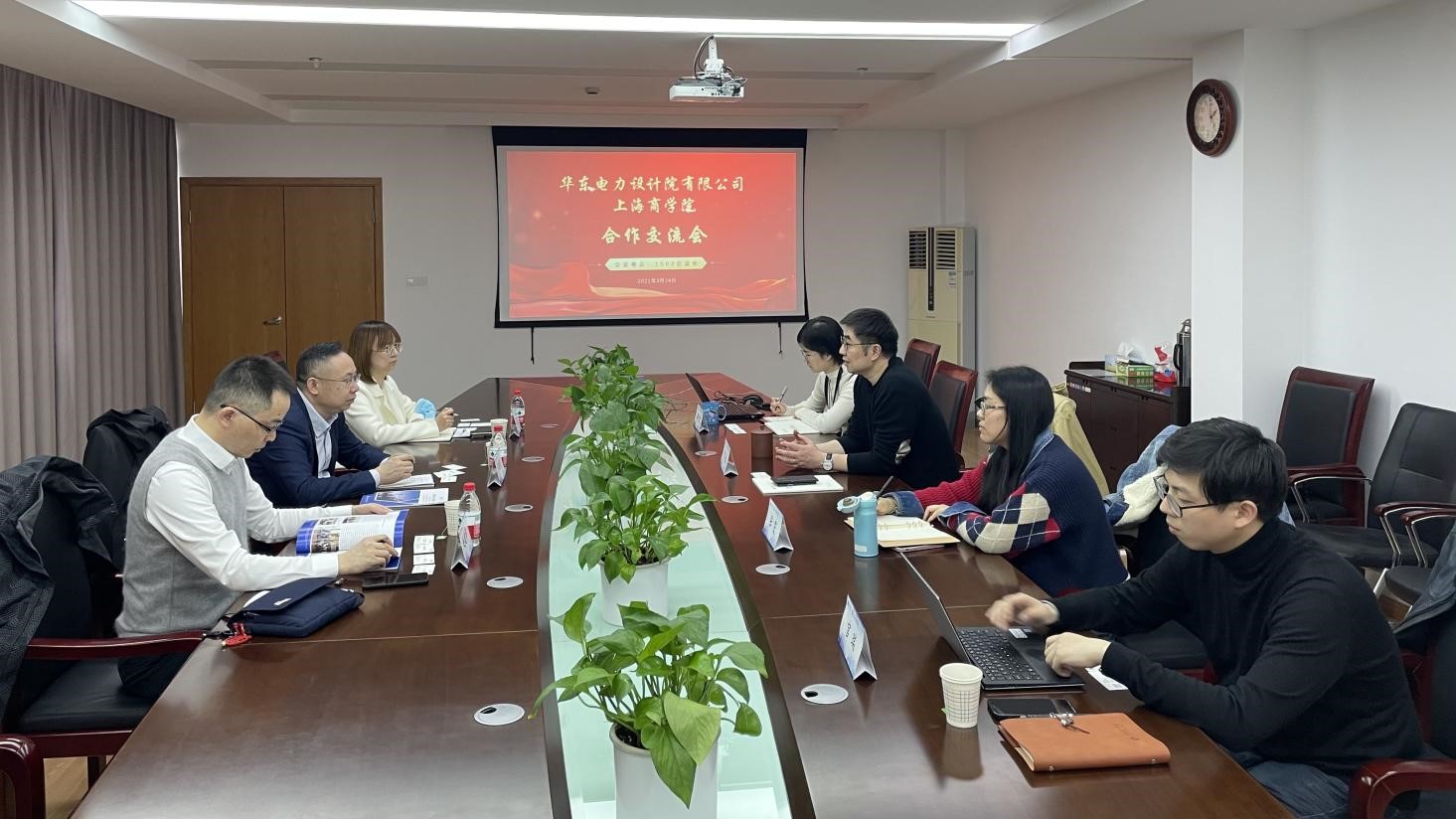
(Scene of the Online Exchange Meeting in China)
In his speech, Uruguayan Minister of Public Health Daniel Salinas introduced the overall situation of Uruguay’s fight against COVID-19. So far, the number of confirmed cases had reached 75,000, accounting for 2% of the total population of Uruguay. Compared to other Latin American countries, Uruguay still kept the pandemic under control. In the early days of pandemic outbreak, the Uruguayan government immediately took a series of active and prudent anti-pandemic measures, including large-scale nucleic acid testing, strict epidemiological survey and quarantine, and timely virus variation analysis. In the next step, Uruguay would accelerate its vaccination process, increase vaccination points nationwide, and expand the scope of vaccination, aiming to realize full vaccine coverage as soon as possible. Daniel Salinas also thanked China for lending a helping hand in this fight against COVID-19. He said that the rapid introduction of the Sinovac vaccine into Uruguay was inseparable from the active communication and coordination made by Chinese Embassy in Uruguay, and China contributed to the well-being of the people in Uruguay.
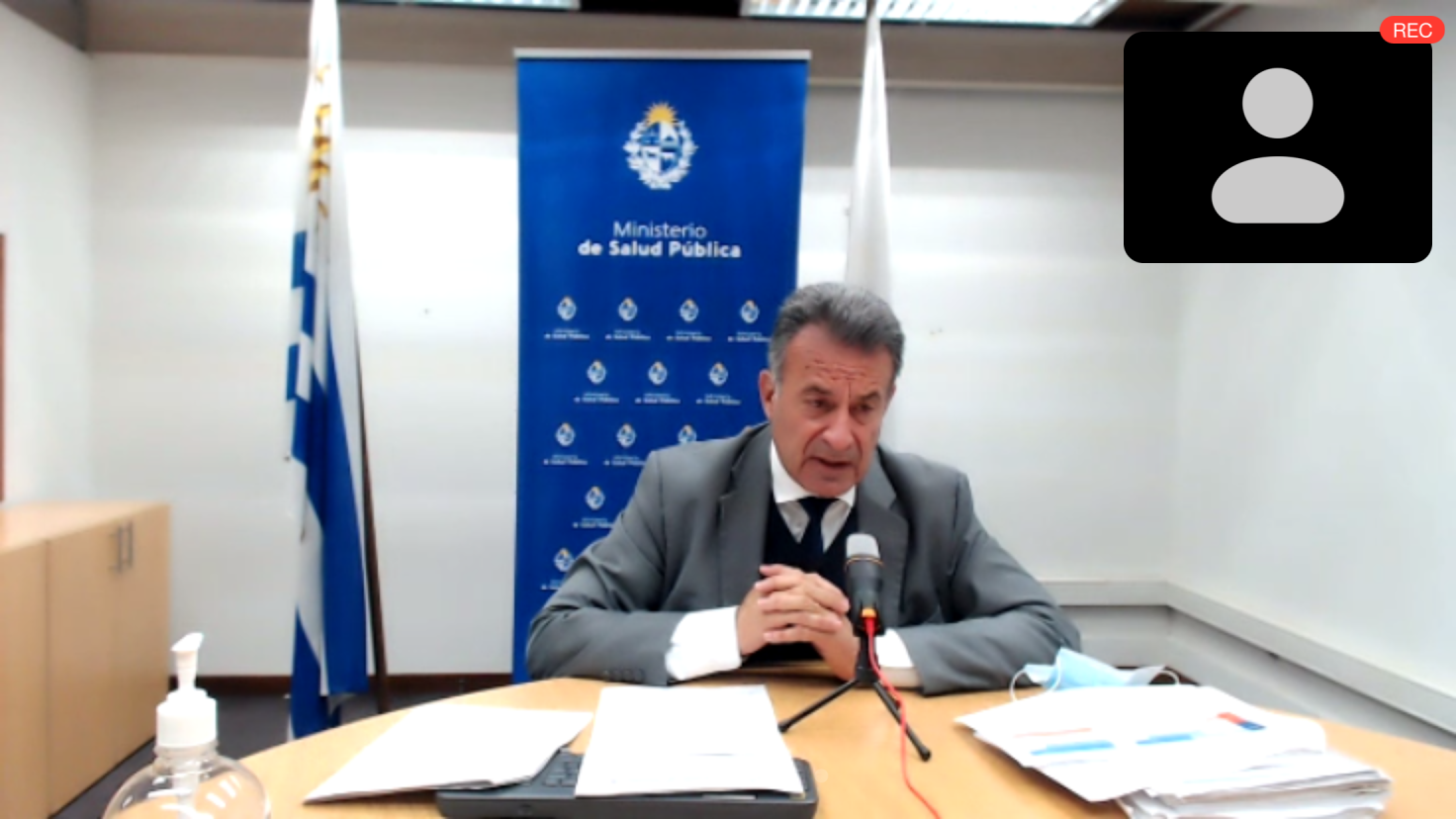
(Uruguayan Minister of Public Health Daniel Salinas giving a speech)
Chinese Ambassador to Uruguay Wang Gang stressed the high necessity of holding this online exchange meeting at the critical moment of Uruguay being hit by the second wave of the pandemic. He said that this meeting would further consolidate Sino-Uruguay consensus in anti-pandemic cooperation, contribute to the building of human health consortium, and promote the construction of a community with a shared future for mankind. Uruguay was one of the first batch of Latin American countries to express support and provide aid for China’s anti-pandemic efforts, and donated pandemic prevention and control supplies through various channels. This fully embodied the brotherhood between the Uruguayan government and people and the Chinese government and people. One year after the outbreak of COVID-19 in Uruguay, two batches of the Sinovac vaccine successfully arrived in Uruguay, which testified to the fruitful results of head-of-state diplomacy and the high level of strategic partnership between the two countries and erected a new milestone in their anti-pandemic cooperation. Wang Gang also expressed his strong belief that the people-to-people bond between the two countries would help them win this fight against COVID-19, and that Sino-Uruguay economic and trade cooperation presented great potentials and promising prospects. In the new era, driven by the “Belt and Road” Initiative, Sino-Uruguay strategic partnership certainly will ride on the wind, and achieve new successes.
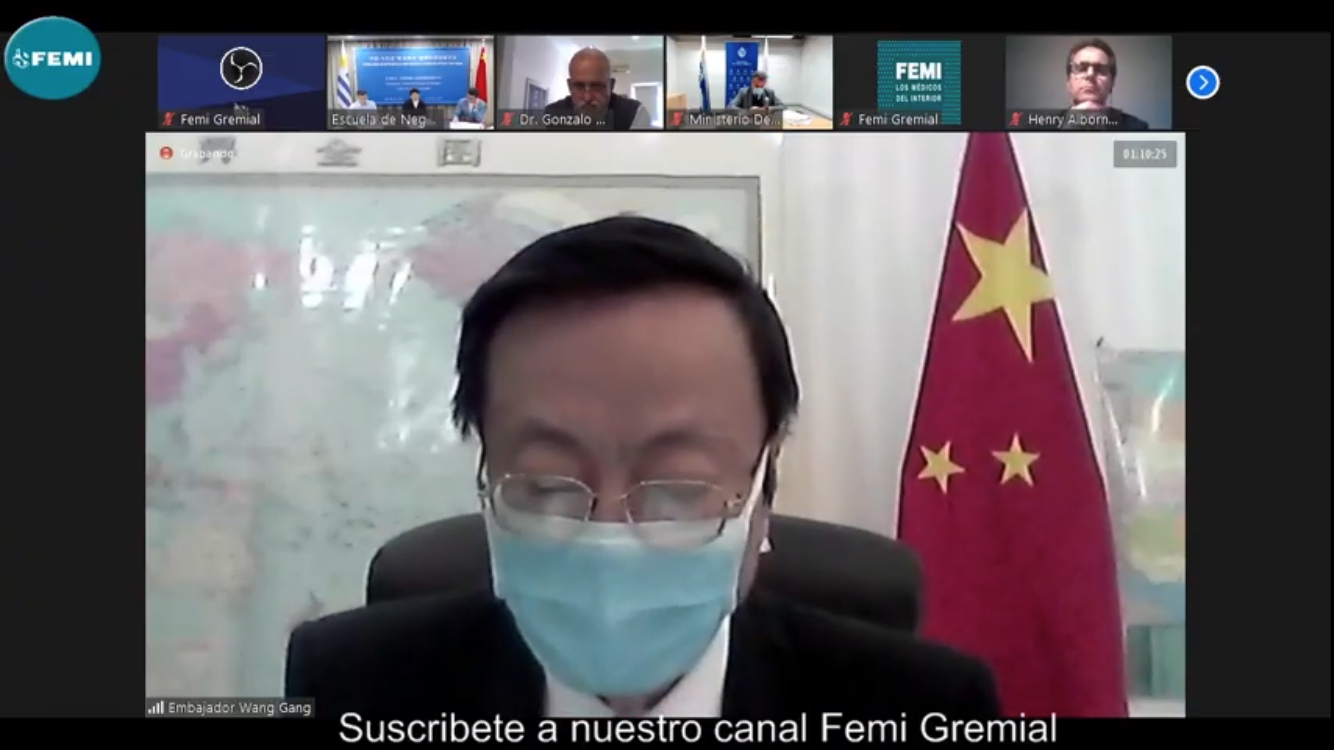
(Chinese Ambassador to Uruguay Wang Gang giving a speech)
He Ying, Vice President of SBS, said in her speech that this exchange meeting not only shared anti-pandemic experience between the two countries, but also offered an opportunity to explore new cooperation fields in the background of pandemic prevention and control. After introducing the progress of work at SBS and the MOFCOM Training Base for International Business Officials (Shanghai) (hereinafter referred to as “Shanghai Training Base”), she talked about the possible new spaces for Sino-Uruguay cooperation in the future from three aspects, i.e., exchange of anti-pandemic experience, promotion of online training programs, and boosting of educational exchange, and expressed her wish to expand new cooperation spaces between the two countries in this new historical stage. She hoped that the two online exchange meetings would strengthen the ties between related departments of the two countries, encourage them to reach more consensuses and develop more cooperation opportunities in the fields of pandemic prevention and control, education, and training, and drive the high-quality development of the “Belt and Road” Initiative, writing a new chapter in their cooperation and exchanges.
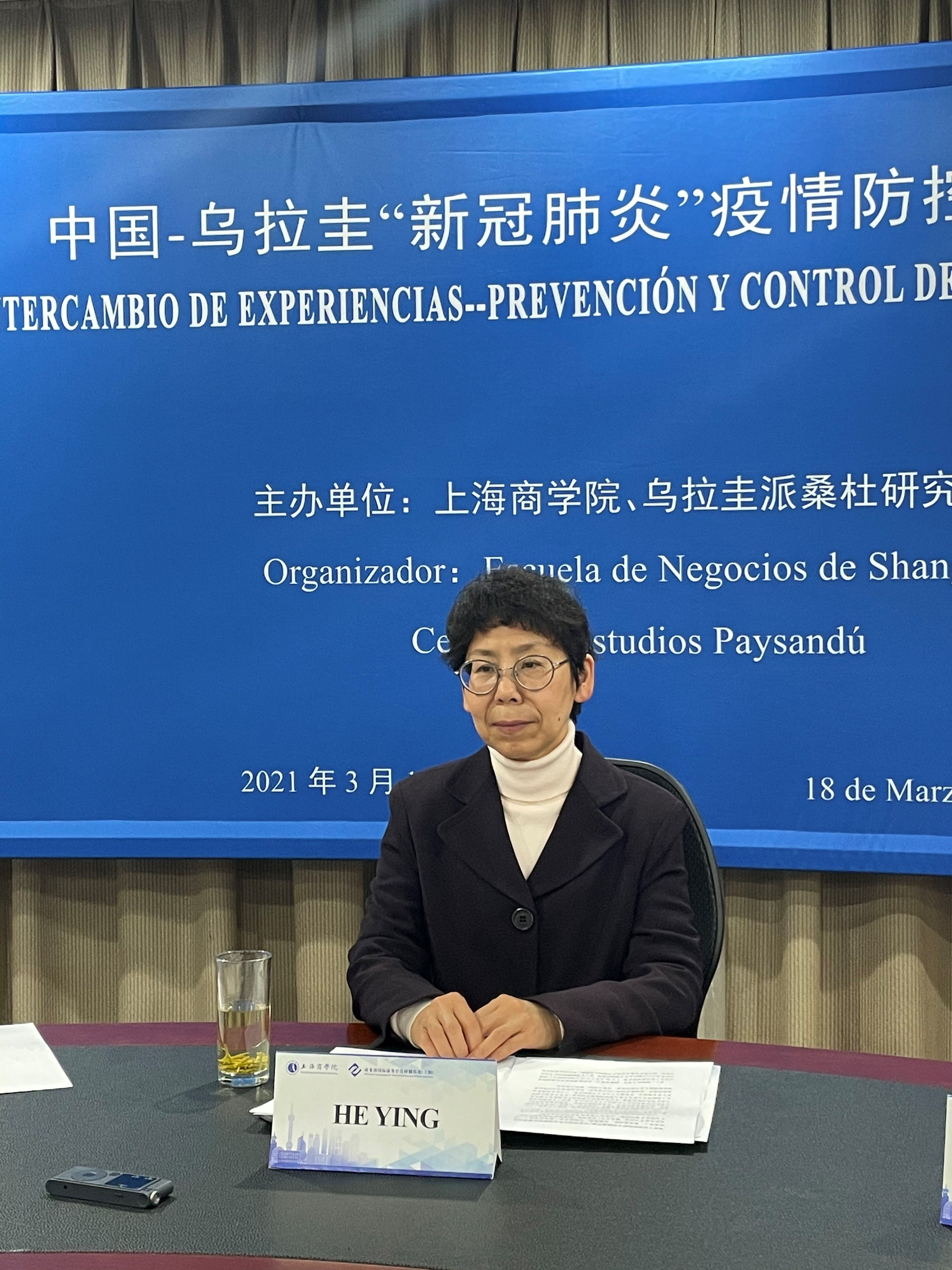
(He Ying, Vice President of SBS, at the exchange meeting)
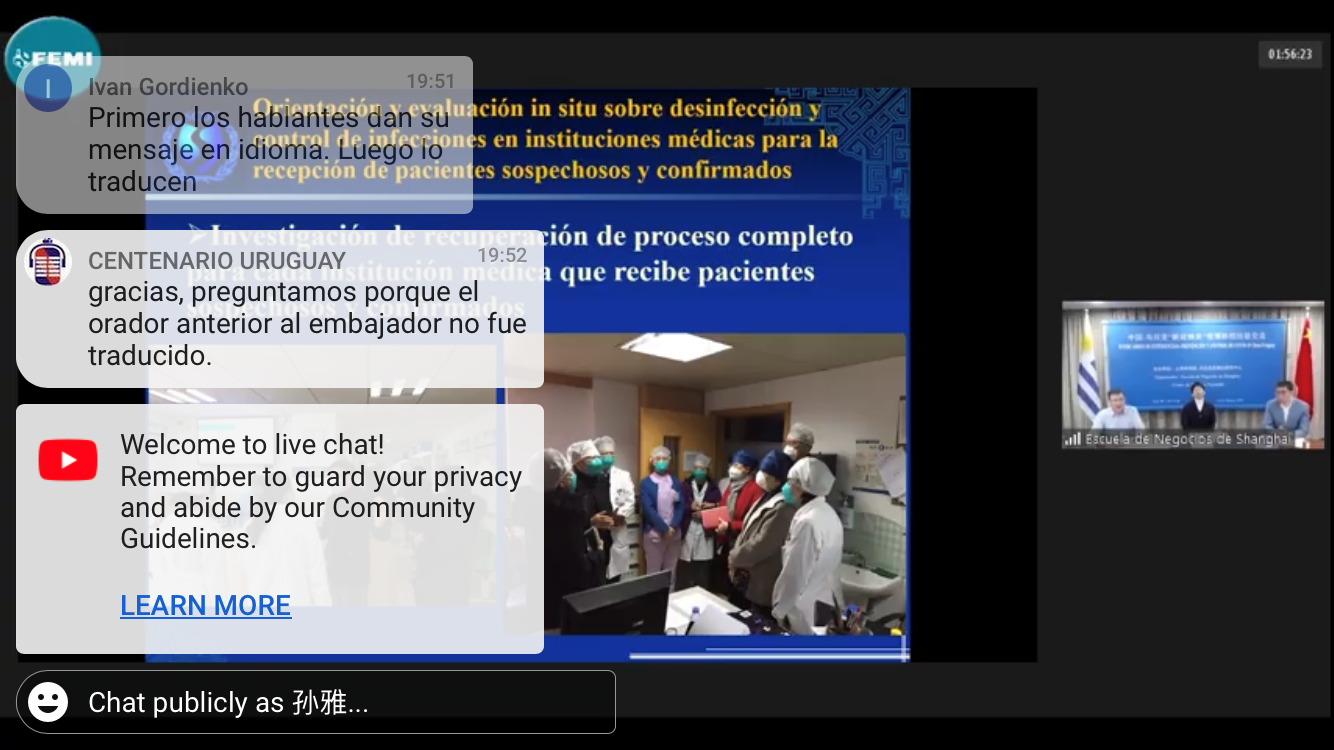
(Foreign participants engaging in online interactions)
In sharing anti-pandemic experience, Director Zhu Renyi took the lead in talking about the experience and achievements of Shanghai in pandemic prevention and control, especially in disinfection and infection control. After that, he introduced Shanghai municipal system for response to public health emergencies and its specific work, offering some referential experience for large cities in pandemic prevention and control. Albornoz Henry, Chairman of Uruguayan Society for Clinical Infection, gave an introduction to the basic situation of Uruguay in terms of population, economy, society, and medicare, and analyzed in depth how COVID-19 had impacted and posed challenges to Uruguay. He said that the measures taken by Uruguay in the early stage, including source of infection control, population flow control, and virus variation prevention,effectively controlled the spread of the virus. However, after experiencing a deterioration of pandemic situation in the past three months, Uruguay must learn more anti-pandemic experience and take stronger measures. In the end, Director Miao Qing talked about his reflections on TCM as the primary therapy for COVID-19. He elaborated the penetration point, clinical features, and disease understanding of TCM therapy using some typical cases, and introduced the therapy with distinctive Chinese characteristics to the Uruguayan people. Viruses know no national borders or races, so, in the spirit of “Warm and Cold, We Share Together”, we should join hands with each other to win this fight against COVID-19 through sharing of anti-pandemic experience.
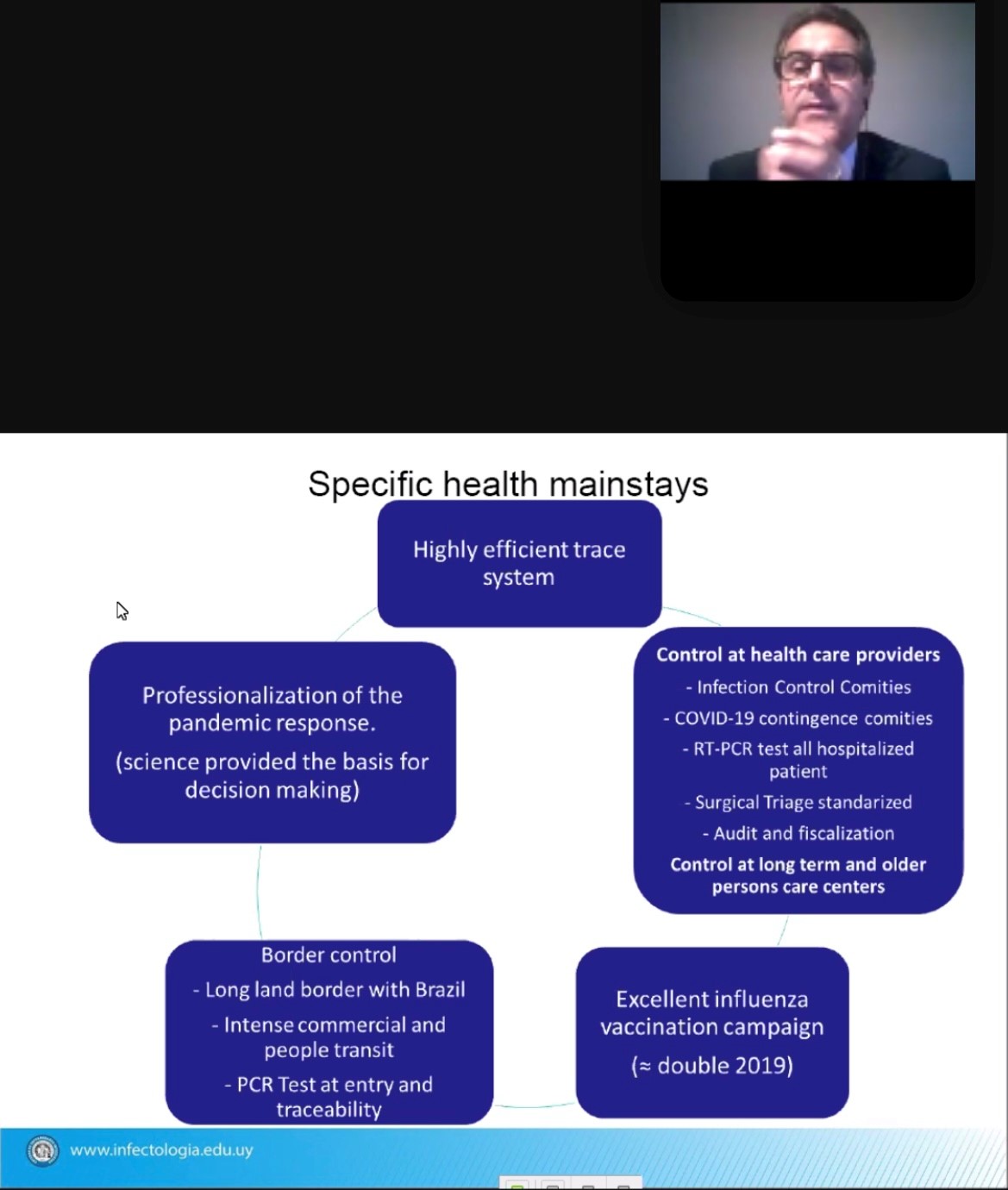
(Albornoz Henry, Chairman of Uruguayan Society for Clinical Infection, introducing Uruguay’s anti-pandemic efforts)
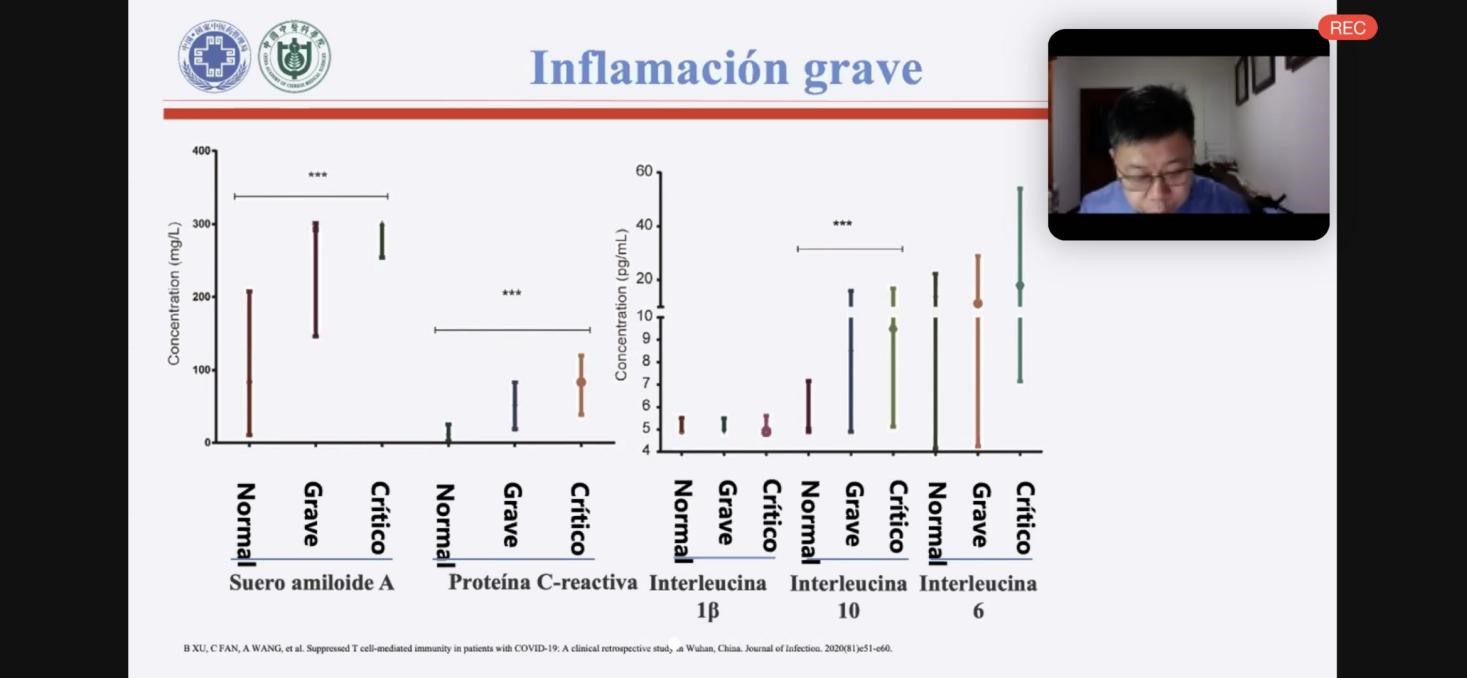
(Director Miao Qing introducing TCM therapy)
COVID-19 has swept across the globe. In face of the pandemic situation, China and Uruguay, although separated by vast oceans, stick together and help each other in this fight. This online exchange meeting was a continuation of “Belt and Road” Initiative: Online Exchange Meeting on Sino-Uruguay New Cooperation Spaces, which was successfully held in November last year. It strengthened the anti-pandemic cooperation and mutual understanding between China and Uruguay, and laid a basis for subsequent online activities, exchanges, and cooperation.